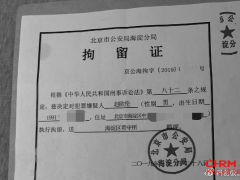
In the two decades of unrivalled economic and technological expansion that have typified the growth of Mainland China from developing country to a world superpower, nothing quite matches the ambition of the Belt and Road initiative. A latter day ‘Silk Road’, this project, with funding running into the hundreds of billions of dollars per year, is the most ambitious of the modern era, and due to the vast quantities of finance involved, it is driving mass change in Mainland China’s banking industry.
One of the chief trends that is being seen is the influx of banks from Singapore, Malaysia and Russia, all eager to take advantage of the potential profit, looking to expand through astute hires of candidates in critical sectors.
The next 12 months will see greater need for candidates in the following areas:
· Corporate Investment Team Head/Senior Relationship Manager
· Project Finance Manager
· Structure Export Finance Manager
· Security Service Relationship Manager /Operations Talent
“This policy is the primary driver for a wide array of talent requirements in these Asian banks operating in Mainland China”, says Simon Lance, Managing Director at Hays Greater China. “This belt and road policy will greatly benefit the Eurasian economies but also Mainland China, particularly engineering procurement companies and steel production companies, and it is with organisations of these kinds that Asian banks want to develop greater business connections, and with that, opportunities”.
For these Asian banks, this is the aim for their incursion into Mainland China, meaning that they require senior candidates with strong contacts in these areas, as well as a wealth of knowledge across all aspects of products in both commercial and investment banking. However, these are not the only markets that are making their presence felt.
With 2018 being the 40th anniversary of the Treaty of Friendship and Peace between Mainland China and Japan, the relationship between the two nations is in the spotlight. With both countries sharing an anti-protectionist stance, Mainland China is hoping that fiscal incentives will encourage Japan to join in the belt and road initiative.
“The relationship between the two countries is extremely positive this year and, following a RMB 200 billion quota for Japanese QFII institutions, we can see an increase in the number of Japanese banks paying greater attention to the Chinese market, swelling the need for candidates”.
Due to the level of seniority required and the skills necessary being particularly niche, the pool from which candidates can be drawn is naturally limited, leading companies to widening the net in their searches.
“Some employers will seek another talent pool from the Mainland China policy banks, as those talents have a lot of client resources, especially with the Mainland China state owned enterprises from the infrastructure of oil or engineering industries. Due to the demand, the mid-level banks will often pay between 30 and 50 per cent salary increases”.
Despite these incentives, many senior RMs currently in state owned firms remain relatively cautious about making the move, concerned by the downsizing and restructuring of teams seen following the global slowdown in 2015 and 2016. Yet many candidates who are not so reluctant remain, and if they have the requisite skill bases, now is a great time for them to exploit their abilities.
Thanks to the magnitude of this ambitions project, the like of which has not been seen in recent history, there are many parties looking to get involved. And as the project’s success or failure will centre around its finance and funding, the banking industry must be ready to play its part, meaning that it will be a period of great positivity for both firms and candidates.
An overview of what other trends have been observed in Mainland China’s banking sector can be viewed below.
· Due to Mainland China ending the limitation on the ratio of foreign shareholder investors, there is a boom in the custody sector, meaning that security service RMs and operations talents are in high demand.
· As well as offering top tier salaries, companies are looking to retain employees through various programmes including pension schemes, or annuity schemes which pay out following various years of employment.
· There is limited requirement for foreign candidates, but where they may be necessary – such as in the tech-driven areas of operations – candidates from Hong Kong and across Asia are preferred.
· Fintech development is making its presence felt in Mainland China, with blockchain continuing to be a major developer in shared services, and the adaption of AI and robotics at the front office retail counter becoming a reality.
 手机版|
手机版|

 二维码|
二维码|






